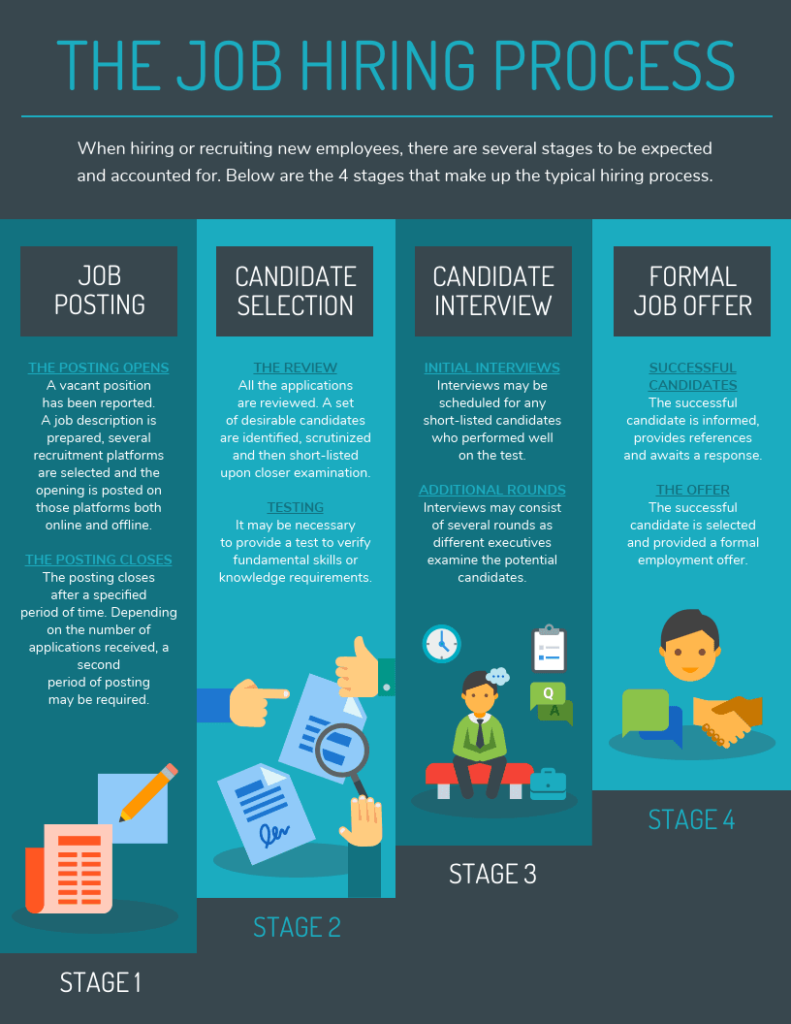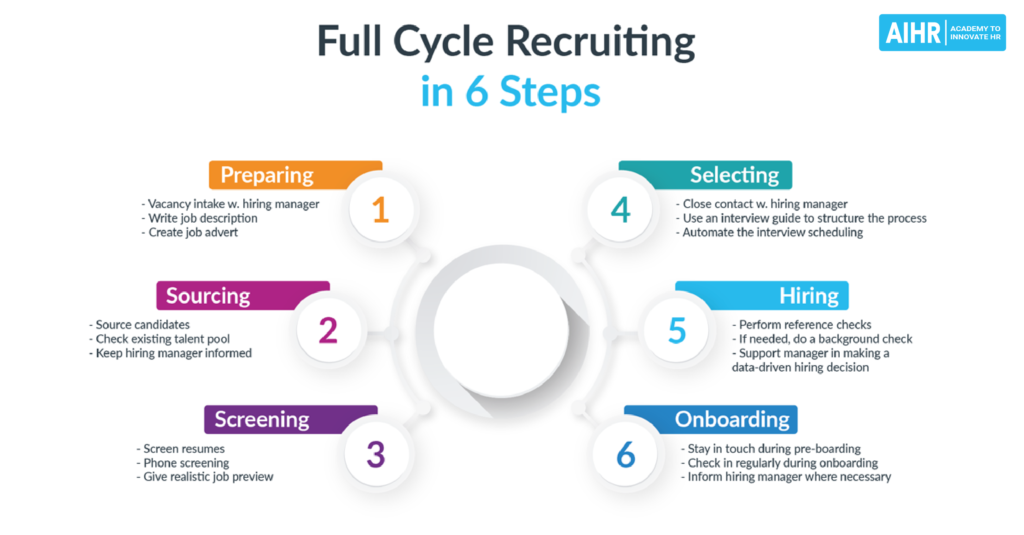Are you interested in starting your own home-based recruiting business, but not sure where to begin? Look no further! This article is packed with valuable tips and advice to help you get started on the right foot. From creating a solid business plan to building a network of potential clients, we’ve got you covered. So grab a cup of coffee and get ready to dive into the world of home-based recruiting with confidence. Success is just around the corner!
Choosing a Niche
Identify your expertise and interests
When starting a home-based recruiting business, it’s important to choose a niche that aligns with your expertise and interests. Identify the industries or job types that you have a deep understanding of and feel passionate about. This will not only make your work more enjoyable but also enable you to provide valuable insights and guidance to both clients and candidates.
Consider market demand
While it’s essential to choose a niche that interests you, it’s also crucial to consider market demand. Research the job market to identify industries or job roles that are in high demand. Look for areas where there is a shortage of qualified candidates. By aligning your niche with these market demands, you increase your chances of success and profitability in your home-based recruiting business.
Research the competition
Before finalizing your niche, take the time to research the competition. Identify other recruiters or firms that specialize in your chosen niche. Analyze their strengths and weaknesses, as well as the strategies they are utilizing to attract clients and candidates. This research will help you understand the market landscape and allow you to differentiate yourself by offering unique services or approaches.
Determine the size of your target market
Once you have identified your niche and assessed the competition, it’s important to determine the size of your target market. Evaluate the number of potential clients and candidates in your chosen niche. Consider factors such as geographic location and industry growth projections. Understanding the size of your target market will help you assess the potential for business growth and ensure you are targeting a viable audience.
Setting Up Your Home Office
Find a suitable workspace
To run a successful home-based recruiting business, it’s crucial to have a dedicated workspace. Find a suitable area in your home that allows you to work without distractions. Ideally, this space should have sufficient lighting, a comfortable chair, and a desk or table to organize your equipment and documents. Creating a separate workspace will help you maintain focus and professionalism during your work hours.
Invest in essential equipment
Equipping your home office with the necessary tools and equipment is essential for productivity and efficiency. Invest in a reliable computer or laptop, a printer, and a dedicated phone line. Additionally, consider purchasing a scanner for easy document management, as well as software solutions for managing candidates and clients. These investments will streamline your operations and allow you to provide timely and efficient services to your clients.
Ensure reliable internet and communication
A stable internet connection is a must for any home-based recruiting business. Ensure that you have a reliable internet service provider that offers a fast and consistent connection. This will enable you to conduct online research, communicate with clients and candidates, and leverage various online platforms for recruitment purposes. Additionally, set up a professional email address and a business phone line to maintain effective communication channels.
Organize your files and documents
Proper organization of your files and documents is crucial for maintaining a streamlined workflow and ensuring quick access to information. Implement a file management system that categorizes documents based on clients, candidates, and job openings. This organization will not only save you time but also contribute to a professional image when dealing with clients and candidates. Consider utilizing cloud storage solutions to backup and access your files from anywhere.

Building a Strong Online Presence
Create a professional website
In today’s digital age, having a professional website is essential for establishing credibility and attracting clients and candidates. Create a website that showcases your expertise, the services you offer, and testimonials from satisfied clients. Include an easily navigable interface, clear contact information, and an online form for candidates to submit their resumes. Keep your website up to date with relevant content and ensure it reflects your brand image.
Optimize your website for search engines
To increase the visibility of your website and attract organic traffic, it’s important to optimize it for search engines. Conduct keyword research to identify the terms and phrases commonly used by your target audience. Incorporate these keywords strategically into your website’s content, meta tags, and page titles. Additionally, ensure that your website is mobile-friendly and has fast loading speeds, as these factors can positively impact your search engine rankings.
Utilize social media platforms
Social media platforms have become powerful tools for recruiting professionals. Identify the platforms most relevant to your target audience and establish a strong presence. Share industry insights, job postings, and valuable content on a regular basis to engage with your audience. Take advantage of social media advertising options to target specific demographics and widen your reach. Additionally, actively participate in industry groups and communities to network with potential clients and candidates.
Establish credibility through online profiles
Apart from your website and social media presence, it’s important to establish credibility through online profiles and directories. Create profiles on professional networking sites, such as LinkedIn, that highlight your expertise, experience, and achievements. Encourage satisfied clients and candidates to provide testimonials or reviews that can be featured on these platforms. These credible online profiles will not only boost your visibility but also build trust among potential clients and candidates.
Developing Effective Marketing Strategies
Define your target audience
To develop effective marketing strategies, it’s crucial to define your target audience. Understand the demographics, job roles, and industries that you aim to serve. Align your messaging, advertising efforts, and content creation with the needs and preferences of your target audience. By tailoring your marketing to a specific group, you can maximize the impact of your efforts and attract clients and candidates more efficiently.
Craft a compelling brand message
Your brand message plays a crucial role in attracting clients and candidates. Craft a compelling message that communicates your values, unique selling proposition, and the benefits of working with you. Clearly articulate how you differentiate yourself from the competition and the value you bring to your clients. Use this brand message consistently across all your marketing channels to build a strong and recognizable brand identity.
Utilize online advertising
Online advertising can be a powerful tool for expanding your reach and attracting clients and candidates. Utilize paid advertising platforms, such as Google Ads or social media advertising, to target your desired audience. Design eye-catching ads that highlight your key services and benefits. Monitor the performance of your ads and adjust your targeting and messaging based on the results to maximize your return on investment.
Network and establish partnerships
Networking and establishing partnerships can significantly enhance your marketing efforts. Attend industry events, conferences, and webinars to connect with potential clients and candidates. Actively participate in relevant online communities and forums to showcase your expertise and build relationships. Additionally, consider partnering with complementary businesses or individuals to cross-promote each other’s services. These networking opportunities can help expand your reach and generate referrals.

Mastering Candidate Sourcing
Utilize job boards and online platforms
Job boards and online platforms are valuable resources for finding qualified candidates. Utilize popular job boards such as Indeed, LinkedIn, or industry-specific platforms to post job openings and search for potential candidates. Tailor your job descriptions to attract the right candidates and leverage the platform’s search filters to narrow down your options. Additionally, consider utilizing niche-specific job boards or online communities to target a more specialized audience.
Leverage social media for recruitment
Social media platforms offer excellent opportunities to source candidates. Leverage platforms such as LinkedIn, Facebook, or Twitter to post job openings and engage with potential candidates. Utilize relevant hashtags and groups to increase the visibility of your posts. Consider joining industry-specific groups on LinkedIn or participating in Twitter chats to actively connect with potential candidates. Engage in conversations and build relationships to attract top talent.
Build a referral network
A referral network can be a powerful source of quality candidates. Encourage satisfied clients and candidates to refer their connections who may be a good fit for your job openings. Offer incentives, such as referral bonuses or discounts on your services, to further motivate referrals. Additionally, build relationships with professionals in related fields who may have access to a pool of qualified candidates. By nurturing a strong referral network, you can tap into a reliable source of potential recruits.
Establish relationships with educational institutions
Building relationships with educational institutions can provide access to fresh talent and help you stay ahead of the curve. Partner with colleges, universities, or vocational schools to establish connections with students and graduates. Offer to conduct workshops or informational sessions to educate students about career opportunities in your niche. Consider sponsoring internships or co-op programs to attract ambitious individuals who are eager to gain experience in their field of interest.
Implementing Efficient Screening and Selection
Develop a comprehensive screening process
A comprehensive screening process is essential for identifying the most suitable candidates for your clients. Develop a structured process that includes reviewing resumes, conducting phone or video interviews, and administering assessments. Clearly define the qualifications and attributes you are looking for in candidates and use this as a guide throughout the screening process. Implementing a thorough screening process will help you identify top candidates and save time for both yourself and your clients.
Conduct initial phone interviews
Phone interviews provide an opportunity to assess candidates’ communication skills, cultural fit, and initial qualifications. Prepare a list of targeted questions that help you determine whether a candidate is a potential fit for the job opening. Take detailed notes during the interviews to compare candidates later. Use this initial phone interview as a screening tool to identify candidates who will proceed to the next stage of the hiring process.
Design effective assessment tests
Assessment tests can provide valuable insights into a candidate’s skills and capabilities. Design assessments that are tailored to the specific job requirements and industry standards. These tests can evaluate technical skills, problem-solving abilities, or behavioral traits. Utilize online assessment platforms or develop customized assessments to streamline the process. Analyze the results carefully to identify candidates who demonstrate the desired competencies.
Implement behavioral interviews
Behavioral interviews delve deeper into a candidate’s past experiences and behaviors to assess their fit for a particular position. Develop a list of behavioral questions that prompt candidates to share specific examples of how they have handled situations relevant to the job. Evaluate not only their technical skills but also their interpersonal skills, problem-solving abilities, and decision-making capabilities. Carefully evaluate their responses to gauge their suitability for the role and the company culture.

Building Strong Relationships with Clients
Develop a deep understanding of client needs
To build strong relationships with clients, it’s essential to develop a deep understanding of their needs and goals. Take the time to have in-depth conversations with clients to understand the specific qualities and skills they are looking for in candidates. Gather as much information as possible about their company culture, values, and objectives. This understanding will enable you to present candidates who align well with their requirements and establish trust with your clients.
Maintain regular and transparent communication
Effective communication is crucial for building strong relationships with clients. Keep your clients updated on the progress of their candidate search and provide regular updates on the status of potential candidates. Be transparent about any challenges or setbacks and offer alternative solutions when necessary. Additionally, always be responsive to client inquiries or requests and provide timely feedback. Regular and transparent communication will strengthen your relationship with clients and demonstrate your commitment to their success.
Deliver exceptional customer service
Providing exceptional customer service is a key differentiator for your home-based recruiting business. Go above and beyond to exceed your client’s expectations throughout the recruitment process. Offer personalized recommendations, insights, and guidance based on your expertise. Be proactive in anticipating their needs and providing solutions. By consistently delivering exceptional customer service, you will leave a lasting impression and foster long-term relationships with your clients.
Establish long-term partnerships
Building long-term partnerships with clients is beneficial for both parties. Nurture your relationships beyond the recruitment process by providing ongoing support and guidance. Stay updated on industry trends and share relevant insights and resources with your clients. Actively seek feedback from clients to continuously improve your services and demonstrate your commitment to their success. By establishing long-term partnerships, you foster loyalty and create a network of satisfied clients who may refer your services to others.
Negotiating and Closing Job Offers
Understand salary negotiation strategies
Negotiating job offers requires a solid understanding of salary negotiation strategies. Conduct research to determine the market rates for similar positions and ensure you have a realistic understanding of the candidate’s market value. Consult with your clients to establish a budget range for the position. Use this information to guide your negotiations and ensure a fair and competitive offer that satisfies both parties. Advocate for your candidate’s interests while also considering the client’s budget and requirements.
Effectively present job offers
Presenting job offers in a clear and professional manner is crucial for a successful recruitment process. Clearly outline the job details, salary, benefits, and any additional perks or incentives. Highlight the unique aspects of the opportunity that make it attractive to the candidate. Ensure you provide all relevant information in writing and give the candidate sufficient time to review and make an informed decision. Effectively presenting job offers can significantly increase the chances of acceptance.
Handle counteroffers professionally
In some instances, candidates may receive counteroffers from their current employers. It is important to handle these situations professionally and objectively. Encourage candidates to evaluate the counteroffer based on their long-term career goals and the reasons they were considering a new opportunity in the first place. Provide guidance and support throughout the decision-making process. Address any concerns or reservations the candidate may have and remind them of the unique benefits and growth opportunities offered by the job you presented.
Ensure a smooth onboarding process
The onboarding process sets the tone for a candidate’s experience within a new organization. Collaborate with your clients to ensure a seamless and welcoming onboarding process for the candidates you have successfully placed. Communicate important logistical details, such as start dates, orientation schedules, and required paperwork. Follow up with both the client and the candidate to ensure everything is progressing smoothly. A positive onboarding experience reinforces the candidate’s decision to accept the job offer and reflects positively on your recruitment services.

Ensuring Legal Compliance and Privacy
Stay updated on labor and employment laws
As a home-based recruiter, it is essential to stay updated on labor and employment laws to ensure legal compliance. Familiarize yourself with relevant national, state, and local laws governing recruitment and employment practices. Stay informed about changes in legislation, including anti-discrimination laws, minimum wage regulations, and requirements for background checks. Adhering to these laws will protect your business, clients, candidates, and ensure fair and ethical recruitment practices.
Adhere to non-discrimination policies
Promoting diversity and inclusion is crucial in the recruitment industry. Adhere to non-discrimination policies, treating all candidates equally and providing equal opportunities for employment. Familiarize yourself with regulations regarding protected classes, such as race, gender, age, and disability, to ensure fair and unbiased recruitment practices. Implement protocols to prevent any form of discrimination and train both yourself and your clients on best practices for creating diverse and inclusive work environments.
Safeguard candidate and client information
Protecting the privacy and confidentiality of candidate and client information is paramount in the recruitment industry. Establish robust data protection policies and ensure compliance with data privacy laws, such as the General Data Protection Regulation (GDPR). Safeguard personal and sensitive information by utilizing secure file storage systems, implementing strong passwords, and regularly updating security software. Prioritize the security and privacy of your candidates and clients to build trust and maintain your professional reputation.
Maintain proper documentation
Maintaining proper documentation throughout the recruitment process is essential for legal compliance and record-keeping. Establish a system to store and organize candidate resumes, applications, interview notes, and other relevant documents. Keep records of client agreements, job descriptions, and any forms or contracts involved in the hiring process. Proper documentation not only ensures accountability and transparency but also provides valuable evidence in case of any legal disputes.
Continual Learning and Growth
Stay updated on industry trends
The recruitment industry is constantly evolving, and staying updated on industry trends is crucial for success. Continuously educate yourself on emerging technologies, changes in recruitment practices, and evolving job market dynamics. Follow industry publications, attend webinars, and participate in professional development programs to stay ahead of the curve. Incorporate these trends into your strategies and adapt your approach to meet the evolving needs of clients and candidates.
Invest in professional development
Investing in your professional development is an investment in the success of your home-based recruiting business. Attend conferences, workshops, or seminars to enhance your knowledge and skills. Pursue certifications or join professional associations that offer resources and networking opportunities. Engage in online courses or webinars to learn new techniques and stay at the forefront of industry best practices. Continually expanding your expertise and qualifications will not only benefit your business but also instill confidence in your clients and candidates.
Network with other recruiters
Networking with other recruiters provides valuable opportunities to learn, collaborate, and expand your professional network. Engage in online communities, industry forums, or social media groups specific to the recruitment industry. Participate in networking events, conferences, or workshops to connect with fellow professionals. Share insights, exchange best practices, and seek advice from experienced recruiters. Building relationships with peers can lead to collaborations, referrals, and mentorship opportunities.
Seek feedback from clients and candidates
Regularly seeking feedback from both clients and candidates is essential for continuous improvement and growth. Request feedback at various stages of the recruitment process to understand their experience and identify areas for improvement. Actively listen to their suggestions and concerns and use this feedback to refine your strategies and services. Demonstrating a commitment to their satisfaction and taking their feedback into account will strengthen relationships and foster loyalty.
In conclusion, starting a home-based recruiting business requires careful consideration of your niche, a well-equipped home office, a strong online presence, effective marketing strategies, efficient candidate sourcing and screening processes, strong client relationships, successful job offer negotiations, legal compliance, and a commitment to ongoing learning and growth. By following these comprehensive guidelines and continuously refining your strategies, you can build a successful and thriving home-based recruiting business.
